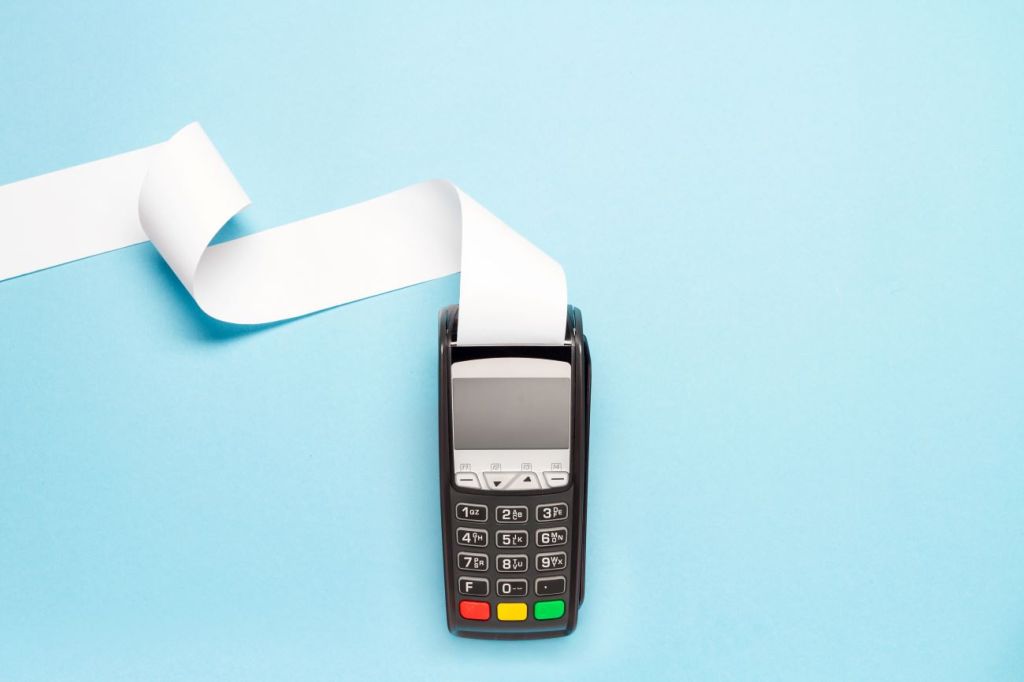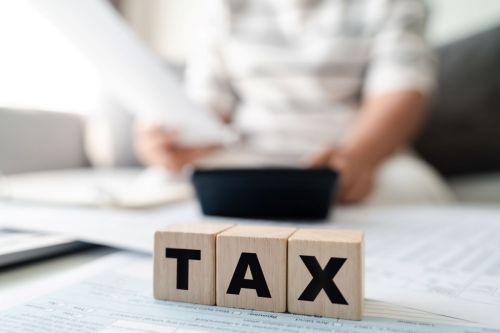Tax Deductions: A Guide for Parents and Teens

Income tax can get a bad rap. But if money weren’t collected through taxes, the government would eventually grind to a halt and we wouldn’t benefit from all its services—from public education to libraries to universal health care and social assistance. We know this as adults, but your kids and teens might not be able to see the bigger income tax picture. But it’s not all bad news. One of the best parts of personal income taxes is deductions.
Here, we show you how to talk to teens and tweens about write-offs—starting with what that even means. This article also covers other common tax deductions, like education expenses and work-related costs teens likely aren’t aware of. While it’s true that once we start work we should pay income tax, nobody should have to pay more than their fair share. Below, we’ve outlined the fundamentals of tax deductions so your teens know what they can claim back on their tax return.
Key takeaways
- Tax write-offs don’t apply to everything, but there is a considerable list of expenses taxpayers (both employees and self-employed people) can use to reduce their taxable income.
- Tax deductions help reduce your total income on your income tax return, which is used to calculate how much you owe the government.
- There are benefits to your teen filing a return, even if they don’t owe anything. They may be eligible for refunds, plus filing a return will grow their annual RRSP contribution room.
- Learning to look for the credits and deductions on a tax return is a skill. If you don’t know where to look, these available deductions could become money left on the table.
What is a tax write-off?
A tax deduction, or tax write-off, means submitting some of the out-of-pocket expenses you had throughout the year to the Canada Revenue Agency (CRA) to help reduce your total taxable income. The concept of a write-off can be confusing, as the term indicates the cost of something simply evaporates. (Parents may remember the Seinfeld episode “The Package,” in which Kramer and Jerry debate what a write-off means—neither actually knew!)
Your tween or teen has probably already used the term, too. Any parent who has heard their kid say “Today was a write-off—I didn’t study for tomorrow’s test” will know. Now you can tell them what it really means: Writing something off when you file your income taxes means deducting a legally allowed amount from your total income, as set by the Canada Revenue Agency. Deductions and write-offs can range from medical bills to education expenses to small business costs. But not everything is considered a write-off.
Read more about common income tax terms and definitions explained.
How do tax deductions work?
The CRA has a long list of deductions, credits, and expenses you (and teens!) can claim on income taxes. If you’ve paid for something on this list, and have receipts to prove it, you’ve got yourself an eligible deduction—or a tax write-off.
Start your teens off with a simple explanation: For every dollar you earn over a certain amount, you give the government a portion. However, you can lower that dollar amount through tax deductions. Clear as mud?
Here’s a different way to look at it: Some expenses, such as moving costs for university or a new job, are tax-deductible. This means the amount of money you spend on these things is subtracted from your taxable income, which reduces your total income at tax time. For example, if you earned $30,000 for the year but spent $2,000 on moving for a job or school, your total income at tax time would amount to $28,000.
Other expenses, like medical or dental bills (except for cosmetic work, which is not eligible), will earn you a non-refundable tax credit. That means a percentage of the total amount of those costs will be deducted from any tax you owe.
Tax deductions may also help you pay less income tax by putting you in a lower tax bracket. This means the more deductions you have, the less taxable income you end up with, which could lower the amount you pay to the government even more. For example, in 2022, individual income up to $50,197 is taxed at a rate of 15 per cent. In the next tax bracket, additional income between $50,197 and $100,392 is taxed at a rate of 20.5 per cent. And it goes up from there but is capped at 33 per cent.
Tax deductions are listed on a T1 General Income Tax and Benefit Return, on lines 24400 to 25600.
You don’t have to attach proof of expenses to your tax return, but you do need solid evidence of these expenses: receipts, bank statements, and any other supporting documents. Keep this paperwork, or digital files, organized and ready in case the CRA does a pre- or post-assessment review of your list of deductions (i.e., an audit).
Read more about how income tax works in Canada.

Keep those receipts!
It’s important to track expenses accurately and retain proof of payment throughout the year so this doesn’t become an onerous task every April. Teach your teen that any expenses they are using as deductions, or write-offs, need to be documented, organized, and stored. The CRA suggests keeping receipts and income tax records for six years.
There’s no right or wrong way to organize and store receipts, bank records, and other supporting documents, but teens should come up with a system that will help them calculate tax deductions at tax time. This way, if the CRA does a pre- or post-assessment review on these expenses, your teen will be ready to submit receipts or documents as proof. Failure to submit documents could result in losing that credit or deduction and owing the government money.
Tip: That camera on your teen’s smartphone is a handy tax tool. If paperwork is not their forte, encourage your teen to take photos of receipts or documents, then immediately drop them into digital folders labelled by month and year.
Why should teens understand tax deductions?
Teens who have a job and make their own money should know how to maximize these earnings by lowering the amount they pay in taxes. Even if they owe the government absolutely nothing, there are benefits to filing a tax return as a teen anyway.
For now, let’s say your teen gets a part-time job fulfilling online grocery orders at the supermarket. If they earn less than the basic personal amount set by the CRA (which is $14,398 for the 2022 tax year), they don’t need to pay any income taxes at all. However, if they earn more than the basic personal amount, they may be able to reduce their taxable income through tax deductions to ensure they owe as little as possible at tax time.
Another reason to file tax returns (and they will love this one): refunds. Your teen may be entitled to a refund, meaning a cheque in the mail or automatic bank payment from the government, because of payroll deductions made by their employer. Most employers automatically deduct EI (Employment Insurance) regardless of age and either CPP (Canada Pension Plan) or QPP (Québec Pension Plan) contributions for employees aged 18 to 65. But these deductions may be too high for your teen, meaning they could get some of this money back.
And lastly, RRSP (registered retirement savings plan) contribution room is another big reason for teens to file their taxes and further understand tax deductions. They may roll their eyes at the faraway concept of retirement, but let them know that RRSP contribution room rolls into the next tax year, and the next. Even if they don’t put a penny away into an RRSP until adulthood, that contribution room will grow year after year. When they’re ready, there will be a sizable amount available to sock away money into RRSPs, which reduces their taxable income for the year and may even get them a refund.
5 common expenses that are tax-deductible in Canada
Many Canadians are eligible for at least some tax-deductible expenses each year, but those who don’t know to look for them miss out year after year—and pay more in income taxes. Here are five common tax-deductible expenses to tell your teens about:
1. Medical expenses
Many medical expenses can be claimed on a tax return, from glasses to therapy. Teach teens to do their research or ask questions to see if any of their medical costs are tax-deductible. Some expenses may not be obvious—for example, part of the cost of buying gluten-free products can be claimed as a medical expense for someone diagnosed with celiac disease. Or if they break their leg and need to buy crutches, that is considered a medical expense by the CRA.
2. Childcare
If your kids decide to have children in the future, tell them there’s an Easter egg from the government: Parents can claim childcare expenses (money paid to have an individual or group daycare look after their child) on their tax return so they can continue working, operate their own business, attend school, or carry on with research if they have received a grant.
3. Self-employment or business owner’s expenses
Business owners and self-employed people can deduct a wide range of expenses related to their business. Some of the biggest tax-deductible expenses include rent or property tax, internet charges, accounting and legal fees, advertising, a portion of business-related meals and entertainment, business insurance, and a percentage of expensive items called “capital assets”: computers, software, furniture, office artwork, etc. Self-employed people can also opt to pay EI premiums for access to EI special benefits, such as paid parental leave or sick leave. The best part is you get a tax credit for the EI premiums you pay throughout the year.
Is your son or daughter a volunteer firefighter or search-and-rescue volunteer? They may be able to claim a tax credit for that, too.
4. RRSPs
Contributions to an RRSP can be used to reduce the amount of taxes you owe. In other words, the more you set aside for retirement tomorrow, the less you have to pay in taxes today. But as mentioned above, there’s a limit to how much you can squirrel away into RRSPs every year. This is called your contribution room. For every year income is reported, however, the RRSP contribution room usually increases. For teens who get into the habit of filing tax returns, by the time they’re making a decent income as an adult, there should be lots of contribution room in their future to reduce taxes owed.
5. Provincial or territorial income tax and credits
We all have to pay provincial or territorial tax on top of federal income tax. But depending on where you live, you may be entitled to receive additional credits to reduce your taxes owed or even receive a refund. In Ontario, for example, there are tax credits for interest paid on a student loan or expenses related to job training. An Ontario student can also carry forward an unused amount of tuition in a given tax year. The catch is they have to claim this unused tuition amount in the first year they do owe taxes, or they’ll lose this perk.
Common tax deductions for teens
Teens can deduct a range of expenses on their tax return. And if they aren’t sure, tell them to pick up their phone and actually make a call—the CRA, at 1-800-959-8281, will answer any questions. Here are just some of the things teens can deduct:

Education expenses
The cost of tuition and other education-related costs are eligible to be used as tax deductions. The interest that’s paid on a student loan is also eligible. In addition, students can claim the cost of moving for study purposes as well as public transit passes.
Work-related expenses
If your teen reported income in 2021, they can claim the Canada employment amount for credit for work-related expenses, such as a uniform or transportation costs. The Canada employment amount is meant to cover the day-to-day costs of working that aren’t eligible as tax credits on their own.
If you have a budding entrepreneur at home, they will be happy to know there is a wide range of expenses they can claim, including supplies and equipment, travel, and accounting costs, if and when they have their own business.
Understanding tax deductions helps build your teen’s financial literacy skills
Filing income tax is probably not your teen’s idea of a good time. But now is the time to help them get comfortable with filing a return. As students don’t often have as much employment income, student tax returns are pretty easy to fill out and make a gentle first step for this lifelong process. It’s all part of financial literacy: Your kids will gain a better understanding of the tax system and how to claim all the deductions they’re entitled to, keeping more money in their pockets. And with Mydoh, kids can take control of that pocket money—with a little oversight from parents—deciding how much they want to save, splurge, invest, or give away for a good cause.
Download Mydoh and help build the foundation of financial literacy for your kids and teenagers.
This article offers general information only and is not intended as legal, financial or other professional advice. A professional advisor should be consulted regarding your specific situation. While the information presented is believed to be factual and current, its accuracy is not guaranteed and it should not be regarded as a complete analysis of the subjects discussed. All expressions of opinion reflect the judgment of the author(s) as of the date of publication and are subject to change. No endorsement of any third parties or their advice, opinions, information, products or services is expressly given or implied by Royal Bank of Canada or its affiliates.






